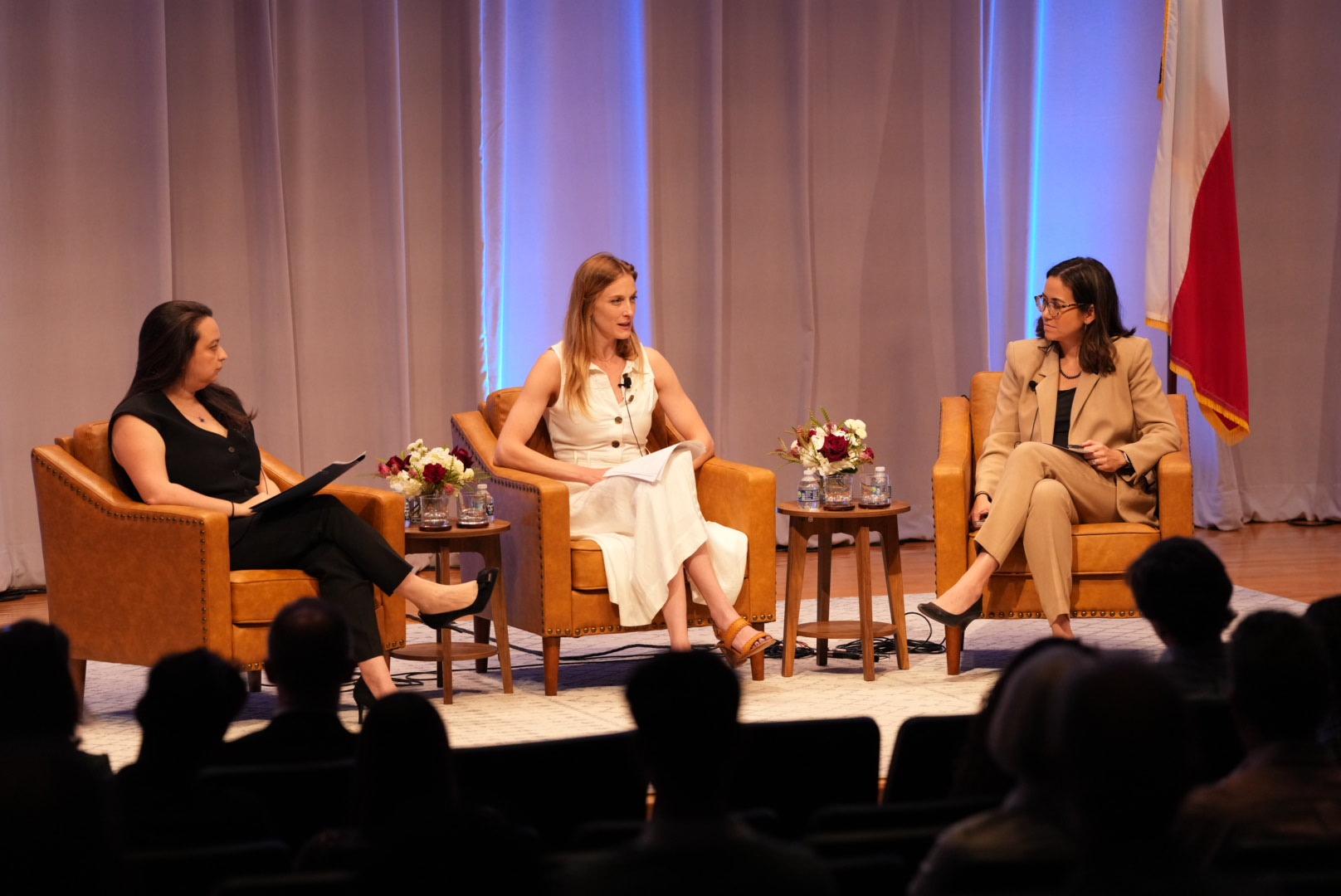
By Shannaya L. Raul, Bush School MIA Student.
On April 03, 2025, the Mosbacher Institute and Scowcroft Institute hosted another event in its Borders and Migration Program’s The Other Side of the Border: Ties that Bind and Issues That Divide speaker series, titled “Perspectives on Venezuela’s Humanitarian, Political, and Economic Challenges.” The event featured the Executive Director of the Vandenberg Coalition, Carrie Filipetti, and Senior Associate to the Americas Program at the Center for Strategic and International Studies, Alexandra Winkler. The welcome remarks for this event were given by Dr. Raymond Robertson, Director of the Mosbacher Institute, and discussion was moderated by Assistant Professor Aileen Teague, who is also the speaker series’ organizer.
Filipetti opened with an overview of Venezuela’s decent into authoritarianism under Hugo Chavez in 1999, and contrasted U.S. policy towards Venezuela across past and current U.S. administrations. She described the first Trump Administration’s “maximum pressure” strategy, which involved sanctions relief and diplomatic pressure as rewards for political changes and “good behavior,” and support for Interim President Juan Guaidó. She acknowledged, however, that not only did this approach instill fear of military intervention, but it also did not address the core issues of the regime. Under the Biden administration, she noted that the strategy shifted toward increasing sanctions to induce change, but unclear expectations led to only superficial compliance from President Nicolás Maduro. She therefore stressed the need for a well-defined “Plan B” that aligns domestic immigration concerns with foreign policy priorities. Filipetti concluded that support for Venezuelan democracy is not only a domestic or regional obligation and interest, but a global one.
Winkler expanded on the humanitarian dimension, describing Venezuela as home to the world’s largest displacement crisis caused not by war, but by an aggressive dictatorship. Over 8 million Venezuelans have fled due to deteriorating living conditions under a regime that has persisted for over two decades. She described many causes of migration such as political persecution, human rights violations, food insecurity, censorship, and the collapse of essential services. With a minimum wage of just $2 and one in three citizens experiencing food insecurity, she drew attention to the gravity of the crisis that pushed thousands to risk their lives to cross the Darién Gap in 2023. Winkler went on to explain how the dictatorship maintains power, highlighting Venezuela’s July 2024 elections where opposition candidate Edmundo González was only allowed to run 100 days before the election, following the disqualification of María Corina Machado. Despite winning 85% of the votes, the election was disqualified by the regime, a crucial tool used to hold power.
During the Q&A session, the speakers discussed rebuilding Venezuela after Maduro. They emphasized the importance of dismantling organized crime, restoring state authority, collaborating with international partners to reopen markets, and revitalizing the nation’s energy sector. These steps would in turn assist in reducing mass migration into the United States. The speakers also discussed how China, Russia, Cuba, Iran, and El Salvador have supported the continuation of Maduro’s regime through military aid, surveillance technology, and disinformation campaigns. Winkler and Filipetti reiterated the need for restoration of democracy, which will allow for a transparent ruling and reduce malign foreign influence in the country.
The discussion concluded with a call to support Venezuelan diaspora communities, the ending of xenophobic narratives targeting Venezuelans, and vigilance against the warning signs of authoritarianism. Both speakers underscored that the crisis in Venezuela is not isolated, it is a test of the international community’s commitment to democracy, human rights, and accountability.
